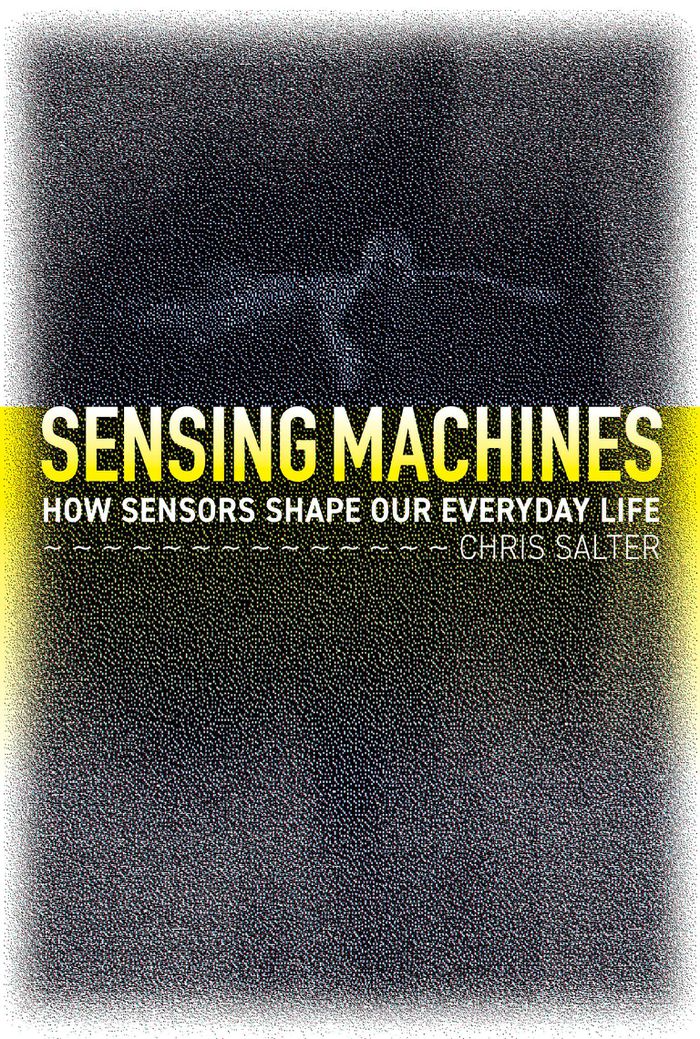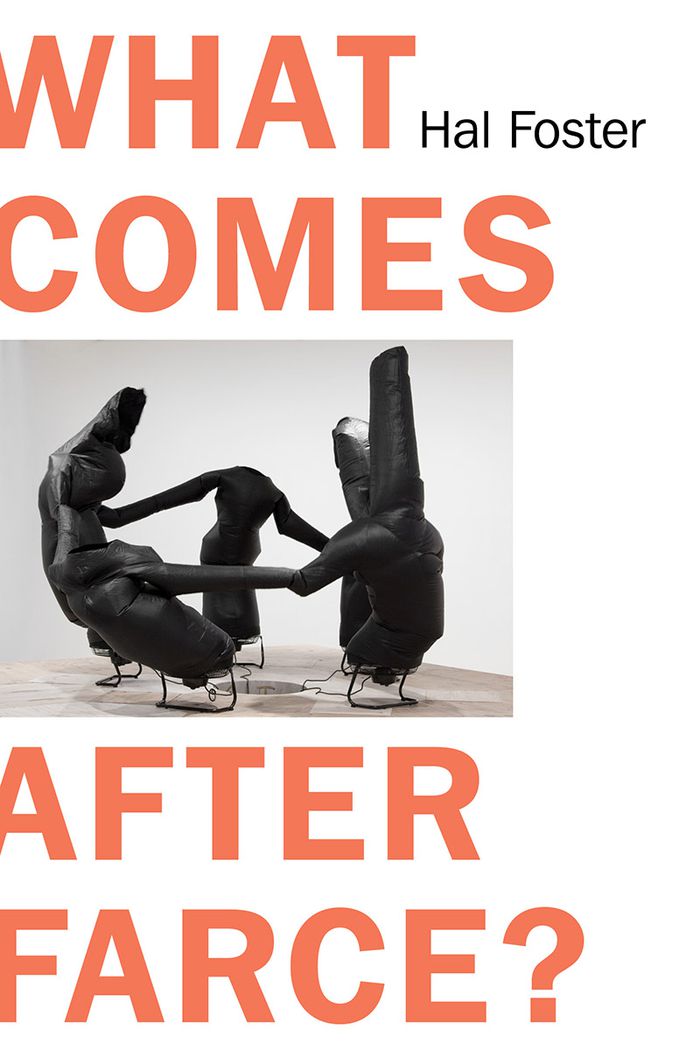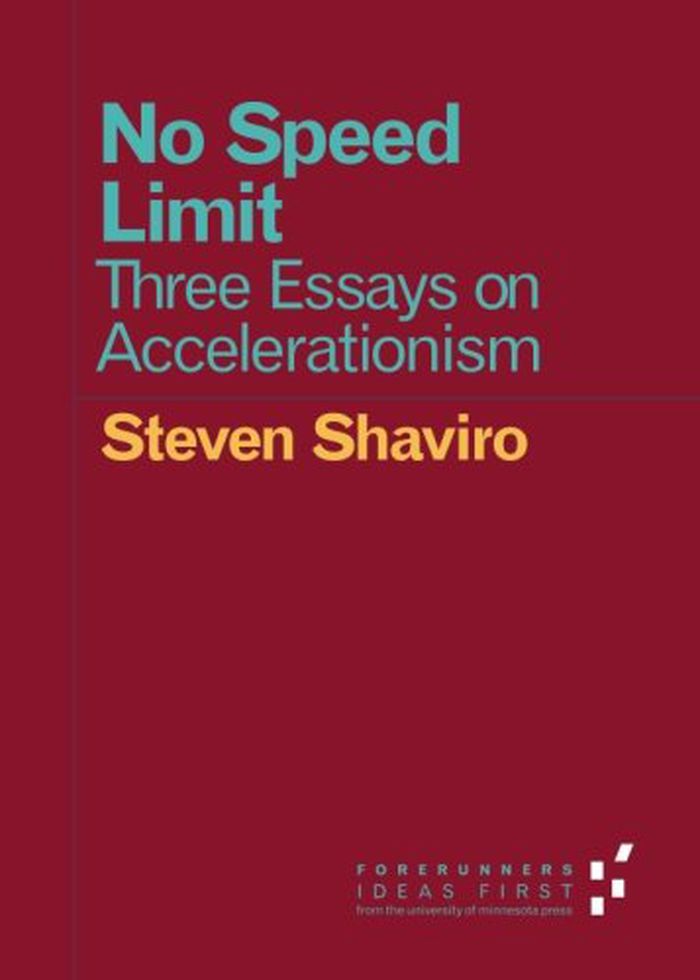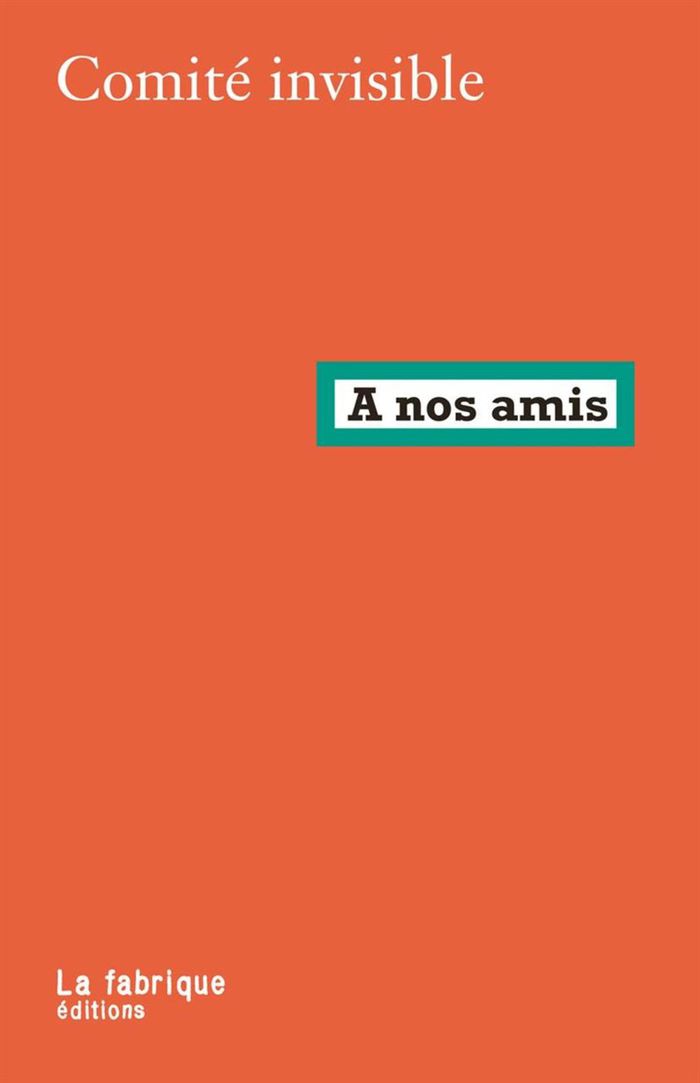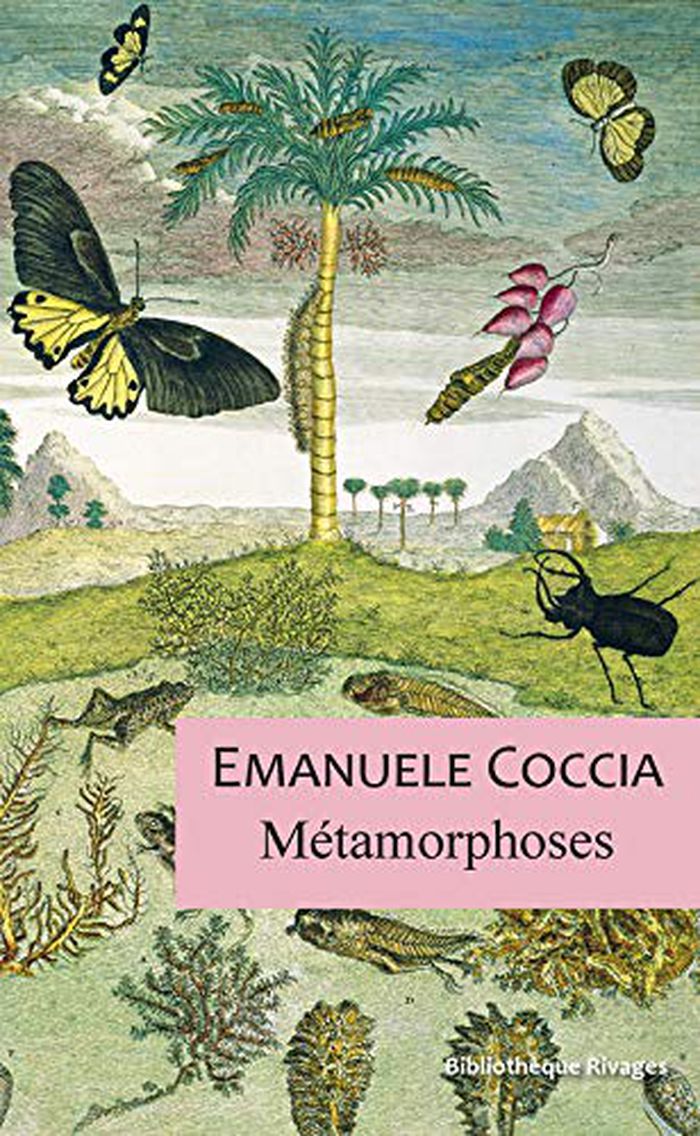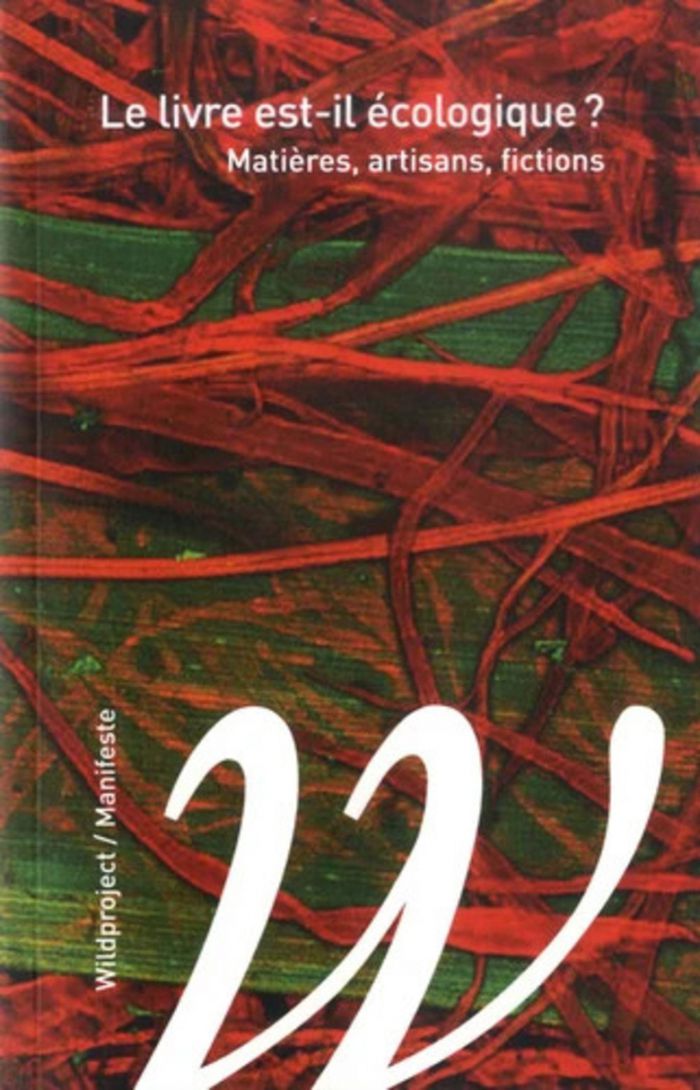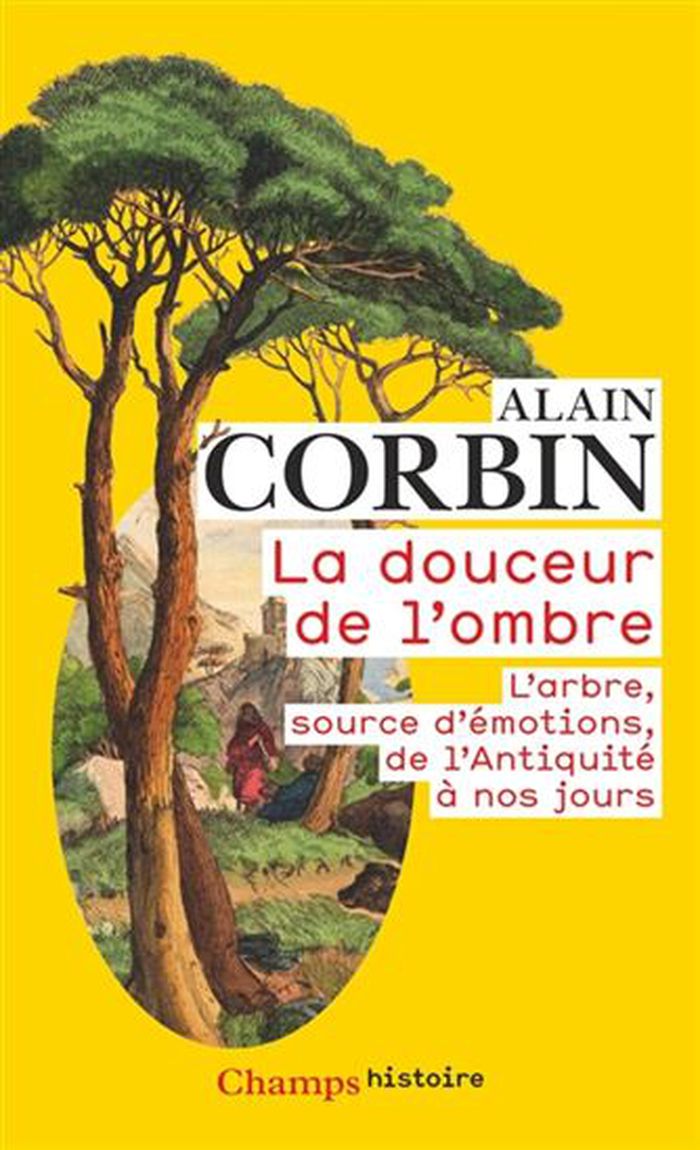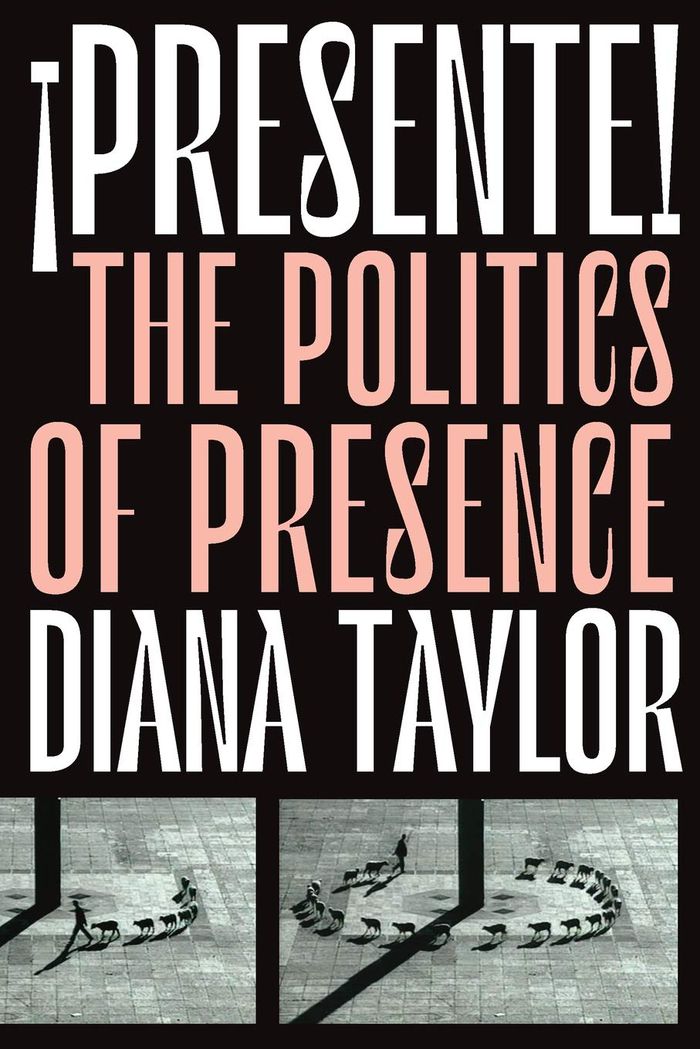$27.99
(disponible sur commande)
Résumé:
Two years after his "Vampyroteuthis Infernalis", Vilém Flusser engaged in another thought experiment: a collection of twenty-two “scenarios for the future.” This publication offers insight into the radical futures of a slipstream Anthropocene that have much to do with speculative fiction, and serves as both a warning and a nudge to imagine what we may yet become and be.
What if? Twenty-two scenarios in search of images
Actions:
Prix:
$27.99
(disponible sur commande)
Résumé:
Two years after his "Vampyroteuthis Infernalis", Vilém Flusser engaged in another thought experiment: a collection of twenty-two “scenarios for the future.” This publication offers insight into the radical futures of a slipstream Anthropocene that have much to do with speculative fiction, and serves as both a warning and a nudge to imagine what we may yet become and be.
Théorie/ philosophie
$39.95
(disponible sur commande)
Résumé:
Sensing machines are everywhere in our world. As we move through the day, electronic sensors and computers adjust our thermostats, guide our Roombas, count our steps, change the orientation of an image when we rotate our phones. There are more of these electronic devices in the world than there are people—in 2020, thirty to fifty billion of them (versus 7.8 billion(...)
Sensing machines: How sensors shape our everyday life
Actions:
Prix:
$39.95
(disponible sur commande)
Résumé:
Sensing machines are everywhere in our world. As we move through the day, electronic sensors and computers adjust our thermostats, guide our Roombas, count our steps, change the orientation of an image when we rotate our phones. There are more of these electronic devices in the world than there are people—in 2020, thirty to fifty billion of them (versus 7.8 billion people), with more than a trillion expected in the next decade. In ''Sensing machines,'' Chris Salter examines how we are tracked, surveilled, tantalized, and seduced by machines ranging from smart watches and mood trackers to massive immersive art installations.
Théorie/ philosophie
$19.95
(disponible sur commande)
Résumé:
Byung-Chul Han’s critique of the infosphere highlights the price we are paying for our growing preoccupation with information and communication. Today we search for more information without gaining any real knowledge. We communicate constantly without participating in a community. We save masses of data without keeping track of our memories. We accumulate friends and(...)
Non-things: Upheaval in the lifeworld
Actions:
Prix:
$19.95
(disponible sur commande)
Résumé:
Byung-Chul Han’s critique of the infosphere highlights the price we are paying for our growing preoccupation with information and communication. Today we search for more information without gaining any real knowledge. We communicate constantly without participating in a community. We save masses of data without keeping track of our memories. We accumulate friends and followers without encountering other people. This is how information develops a form of life that has no stability or duration. And as we become increasingly absorbed in the infosphere, we lose touch with the magic of things which provide a stable environment for dwelling and give continuity to human life. The infosphere may seem to grant us new freedoms but it creates new forms of control too, and it cuts us off from the kind of freedom that is tied to acting in the world.
Théorie/ philosophie
What comes after farce?
$33.95
(disponible sur commande)
Résumé:
If farce follows tragedy, what follows farce? Where does the double predicament of a post-truth and post-shame politics leave artists and critics on the left? How to demystify a hegemonic order that dismisses its own contradictions? How to belittle a political elite that cannot be embarrassed, or to mock party leaders who thrive on the absurd? How to out-dada President(...)
What comes after farce?
Actions:
Prix:
$33.95
(disponible sur commande)
Résumé:
If farce follows tragedy, what follows farce? Where does the double predicament of a post-truth and post-shame politics leave artists and critics on the left? How to demystify a hegemonic order that dismisses its own contradictions? How to belittle a political elite that cannot be embarrassed, or to mock party leaders who thrive on the absurd? How to out-dada President Ubu? And, in any event, why add outrage to a media economy that thrives on the same? 'What Comes After Farce?' comments on shifts in art, criticism, and fiction in the face of the current regime of war, surveillance, extreme inequality, and media disruption. A first section focuses on the cultural politics of emergency since 9/11, including the use and abuse of trauma, paranoia, and kitsch. A second reviews the neoliberal makeover of art institutions during the same period. Finally, a third section surveys transformations in media as reflected in recent art, film, and fiction. Among the phenomena explored here are “machine vision” (images produced by machines for other machines without a human interface),“operational images” (images that do not represent the world so much as intervene in it), and the algorithmic scripting of information so pervasive in our everyday lives.
Théorie/ philosophie
$13.99
(disponible en magasin)
Résumé:
Accelerationism is the bastard offspring of a furtive liaison between Marxism and science fiction. Its basic premise is that the only way out is the way through: to get beyond capitalism, we need to push its technologies to the point where they explode. This may be dubious as a political strategy, but it works as a powerful artistic program. Other authors have debated(...)
No speed limit: essays on accelerationsim
Actions:
Prix:
$13.99
(disponible en magasin)
Résumé:
Accelerationism is the bastard offspring of a furtive liaison between Marxism and science fiction. Its basic premise is that the only way out is the way through: to get beyond capitalism, we need to push its technologies to the point where they explode. This may be dubious as a political strategy, but it works as a powerful artistic program. Other authors have debated the pros and cons of accelerationist politics; 'No Speed Limit' makes the case for an accelerationist aesthetics. Our present moment is illuminated, both for good and for ill, in the cracked mirror of science-fictional futurity.
Théorie/ philosophie
À nos amis
$17.95
(disponible sur commande)
Résumé:
« À nos amis » se veut un rapport sur l’état du monde et du mouvement, un écrit essentiellement stratégique et ouvertement partisan. Son ambition politique est démesurée : produire une intelligibilité partagée de l’époque, en dépit de l’extrême confusion du présent. On ne peut se contenter de célébrer l’onde insurrectionnelle qui parcourt présentement le monde, tout en se(...)
À nos amis
Actions:
Prix:
$17.95
(disponible sur commande)
Résumé:
« À nos amis » se veut un rapport sur l’état du monde et du mouvement, un écrit essentiellement stratégique et ouvertement partisan. Son ambition politique est démesurée : produire une intelligibilité partagée de l’époque, en dépit de l’extrême confusion du présent. On ne peut se contenter de célébrer l’onde insurrectionnelle qui parcourt présentement le monde, tout en se félicitant de l’avoir senti poindre avant les autres, sans s’étendre sur le caractère composite, et parfois franchement équivoque, de certains soulèvements. Ce dont il s’agit aujourd’hui pour le Comité Invisible, c’est plutôt cerner et prendre à bras le corps les difficultés, les impasses et les embûches que rencontre ce mouvement mondial qui n’a pas de nom, mais qui fait tout trembler. Comment faire pour que les insurrections ne s’étranglent pas au stade l’émeute ? Quelles sont les stratégies adverses et les moyens de les déjouer ? Sommes-nous bien sûrs d’avoir saisi le type de gouvernementalité qui nous fait face ? Quelle part de la tradition révolutionnaire faut-il laisser derrière nous pour pouvoir à nouveau envisager une victoire ? Et d’ailleurs, en quoi consisterait une « victoire » ?
Théorie/ philosophie
$38.95
(disponible en magasin)
Résumé:
La métamorphose, tout vivant y passe. C’est l’expérience élémentaire et originaire de la vie, celle qui définit ses forces et ses limites. Depuis Darwin, nous savons que toute forme de vie – l’être humain compris – n’est que la métamorphose d’une autre, bien souvent disparue. De notre naissance à notre alimentation, nous en faisons tous l’expérience. Dans l’acte(...)
Métamorphoses : la matière de la vie
Actions:
Prix:
$38.95
(disponible en magasin)
Résumé:
La métamorphose, tout vivant y passe. C’est l’expérience élémentaire et originaire de la vie, celle qui définit ses forces et ses limites. Depuis Darwin, nous savons que toute forme de vie – l’être humain compris – n’est que la métamorphose d’une autre, bien souvent disparue. De notre naissance à notre alimentation, nous en faisons tous l’expérience. Dans l’acte métamorphique, changement de soi et changement du monde coïncident. Affirmer que toute vie est un fait métamorphique signifie qu’elle traverse les identités et les mondes sans jamais les subir passivement. Cet essai novateur jette les bases d’une philosophie de la métamorphose.
Théorie/ philosophie
$17.95
(disponible sur commande)
Résumé:
Bien plus qu’un ebook, le livre peut être un objet écologiquement vertueux. À certaines conditions cependant… Or depuis vingt ans, l’objet livre et ses usages se sont profondément transformés – concentration du monde de l’édition, délocalisation des impressions, essor du numérique, etc. Dans une série de petites écofictions, des libraires se sont réuni.e.s pour(...)
Le Livre est-il écologique ? : matières, artisans, fictions
Actions:
Prix:
$17.95
(disponible sur commande)
Résumé:
Bien plus qu’un ebook, le livre peut être un objet écologiquement vertueux. À certaines conditions cependant… Or depuis vingt ans, l’objet livre et ses usages se sont profondément transformés – concentration du monde de l’édition, délocalisation des impressions, essor du numérique, etc. Dans une série de petites écofictions, des libraires se sont réuni.e.s pour imaginer le livre du futur. Le résultat : une invitation à ouvrir nos imaginaires, et à penser l’ensemble des interactions liées au livre comme un écosystème – un milieu de vie, tissé et soutenu par un réseau d’interdépendances. Exigences nouvelles des lecteurs, éco-responsabilité, interprofession, « bibliodiversité » : autour de quels piliers voulons-nous construire la chaîne du livre de demain? Dans quelle type d’industrie sera-t-elle prise? Les alternatives sont assurément politiques et tournées vers les communs. Loin des normes et des solutions toutes faites, cet ouvrage collectif dévoile des enjeux qui obligent à de sérieuses réflexions collectives.
Théorie/ philosophie
$19.95
(disponible sur commande)
Résumé:
Une approche anthropologique, historique et artistique des rapports entre l'homme et l'arbre. L'auteur étudie les métamorphoses des représentations, de l'imaginaire et des usages associés à ce végétal depuis l'Antiquité (Pline l'Ancien, Virgile, Columelle) jusqu'aux époques moderne et contemporaine (de Duhamel du Monceau à J. Beuys, en passant par Hugo, Proust ou Y. Bonnefoy).
La douceur de l'ombre : l'arbre, source d'émotions, de l'Antiquité à nos jours
Actions:
Prix:
$19.95
(disponible sur commande)
Résumé:
Une approche anthropologique, historique et artistique des rapports entre l'homme et l'arbre. L'auteur étudie les métamorphoses des représentations, de l'imaginaire et des usages associés à ce végétal depuis l'Antiquité (Pline l'Ancien, Virgile, Columelle) jusqu'aux époques moderne et contemporaine (de Duhamel du Monceau à J. Beuys, en passant par Hugo, Proust ou Y. Bonnefoy).
Théorie/ philosophie
$39.95
(disponible sur commande)
Résumé:
In ''¡Presente!: the politics of presence'' Diana Taylor asks what it means to be physically and politically present in situations where it seems that nothing can be done. As much an act, a word, an attitude, a theoretical intervention, and a performance pedagogy, Taylor maps ''¡Presente!'' at work in scenarios ranging from conquest, through colonial enactments and(...)
¡Presente!: the politics of presence
Actions:
Prix:
$39.95
(disponible sur commande)
Résumé:
In ''¡Presente!: the politics of presence'' Diana Taylor asks what it means to be physically and politically present in situations where it seems that nothing can be done. As much an act, a word, an attitude, a theoretical intervention, and a performance pedagogy, Taylor maps ''¡Presente!'' at work in scenarios ranging from conquest, through colonial enactments and resistance movements, to present moments of capitalist extractivism and forced migration in the Americas. ''¡Presente!''—present among, with, and to; a walking and talking with others; an ontological and epistemic reflection on presence and subjectivity as participatory and relational, founded on mutual recognition—requires rethinking and unlearning in ways that challenge colonial epistemologies. Showing how knowledge is not something to be harvested but a process of being, knowing, and acting with others, Taylor models a way for scholarship to be present in political struggles.
Théorie/ philosophie

